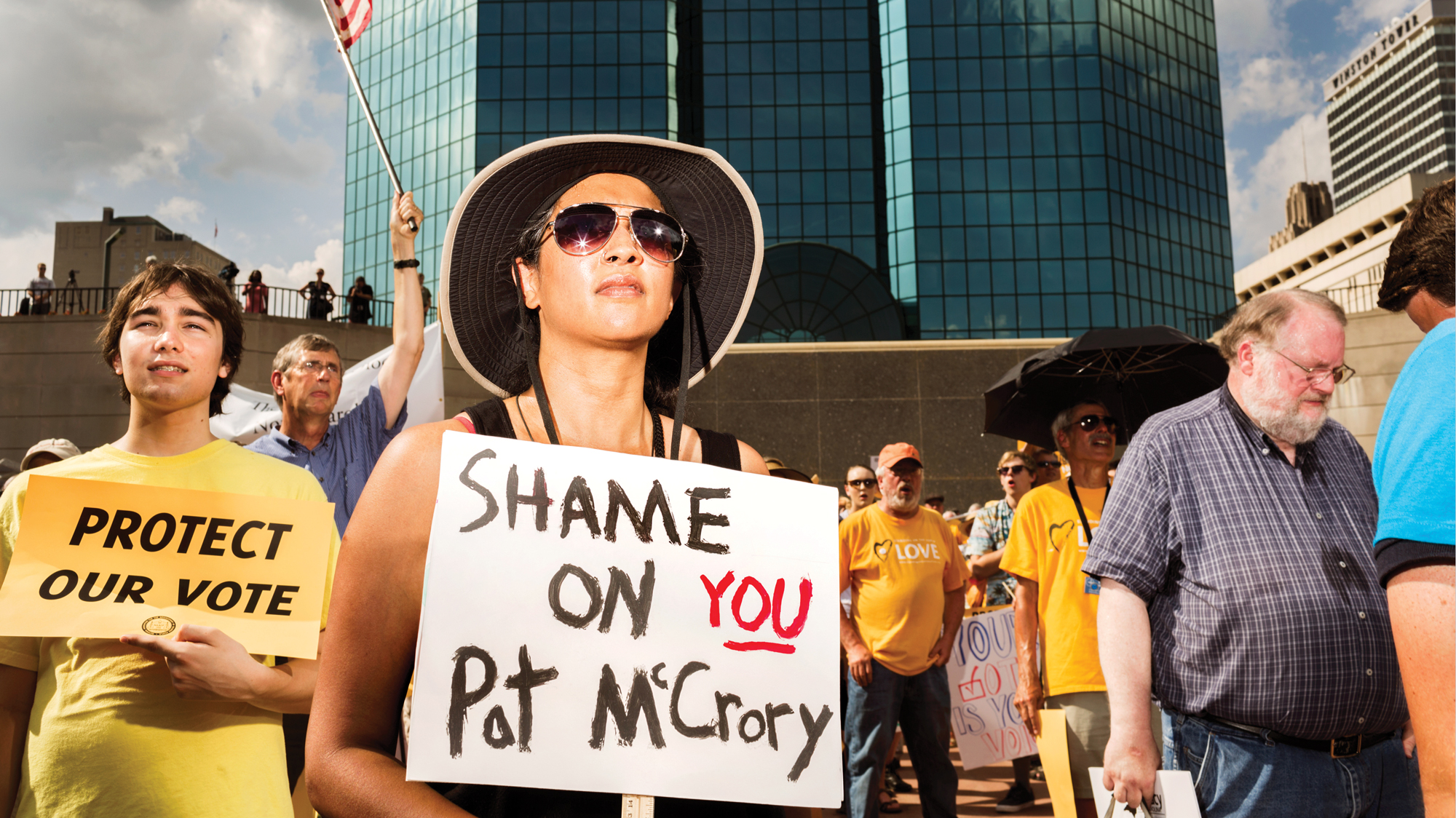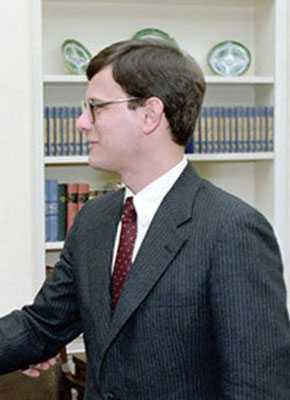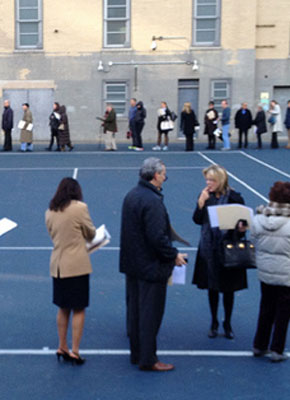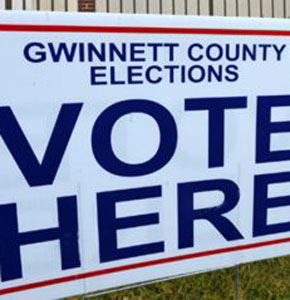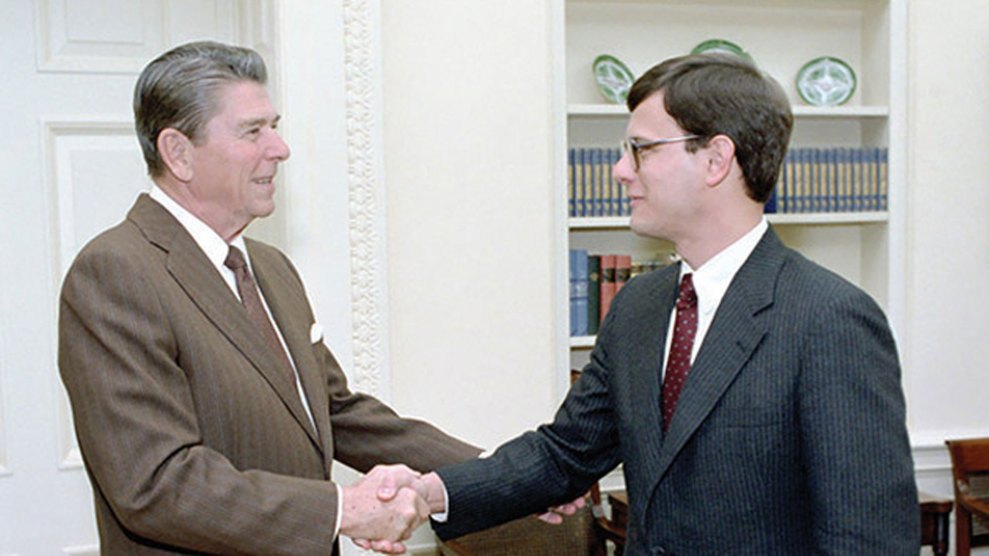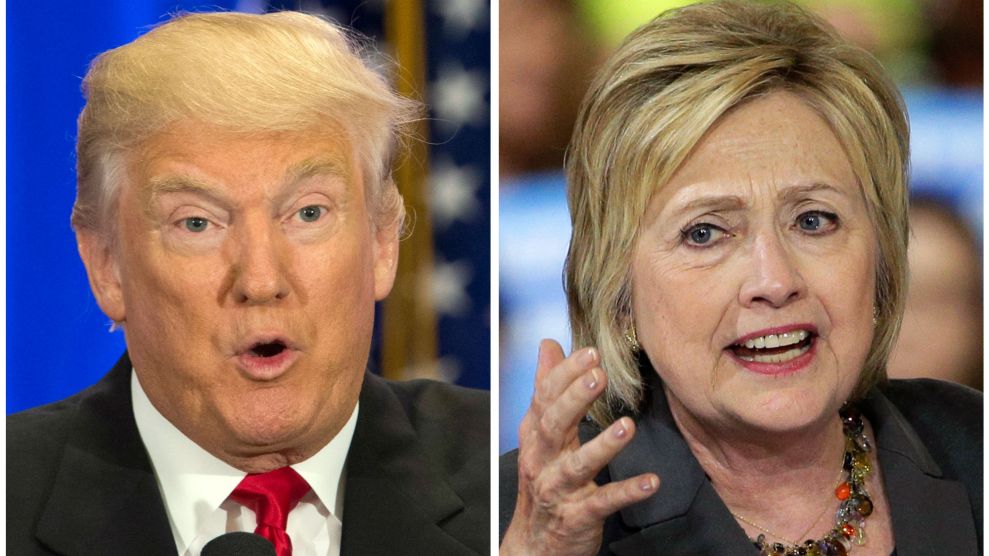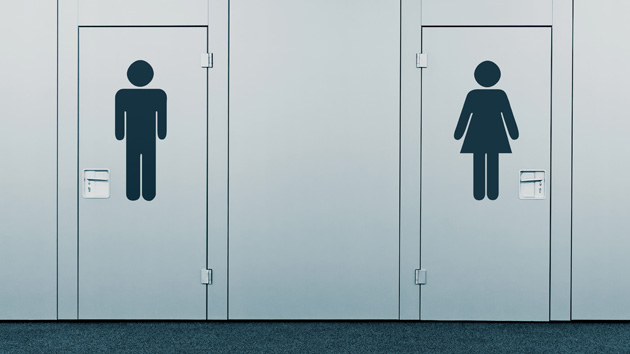Editor’s Note: This story has been corrected.*
“Oh, you’re taking a freedom ride,” a North Carolina organizer said when I mentioned I was going to catch the NAACP bus to Virginia. The chartered coach that pulled into the parking lot of Raleigh’s Martin Street Baptist Church at 4:30 a.m., half full of people who had woken up even earlier in Goldsboro, was cushier than the interstate buses civil rights activists took back in the 1960s. Air ride suspension, air conditioning, plush upholstery. The crowd that settled into the seats and bowed their heads as the Reverend Curtis Gatewood stood in the aisle and invoked those who’d died struggling for voting rights, for civil rights, was different, too. More homogeneous. While waiting outside in the dark to board, Bob Finch, the community affairs chair of the Lee County NAACP, had asked me, one of the very few white people, to identify myself. He’d wondered if I was one of “Pope’s people.”
There’s been a war on in North Carolina, to hear locals tell it, since uberconservative Art Pope brought his Variety Wholesalers fortune into state politics. In the mid-2000s, Pope, who’d previously served in the Statehouse himself, began an ambitious campaign to turn a purple state deep red, a showcase of interlocking conservative policies. He began by contributing to ad campaigns against moderate Republicans and later Democrats, as well as funding think tanks and advocacy groups. Then, in 2010—helped by the Citizens United Supreme Court decision and in concert with a national Republican redistricting project known as REDMAP—his network spent millions to turn the Legislature Republican for the first time in 140 years. Two years later, Pope helped fund Pat McCrory’s successful campaign to become governor. McCrory appointed Pope to be his budget director, and Pope and the politicians he helped elect went on a cutting spree that didn’t stop at slashing education and welfare but went after obscure programs like the University of North Carolina’s Center on Poverty, Work and Opportunity, shuttered for failing to adequately explore free-market solutions to poverty and for being too political. Pope no longer holds office, but the shadow he casts over political life remains large, mentioned in minimalist passing by liberals here—”since Pope,” “after the takeover”—because, duh, everyone knows about it.
Outside the state, the Pope takeover is political trivia—did you read that Jane Mayer piece?—an early but largely forgotten allegory of the Citizens United epoch. But this spring, the battle for North Carolina’s political soul spilled over state lines when, on March 23, a General Assembly stocked with Pope’s people passed House Bill 2, which required transgender people to use the bathroom of the gender assigned to them at birth. HB2 also banned any minimum-wage increases or anti-discrimination statutes local governments might pass, but, in the wake of gay marriage victories, the “bathroom bill” is what lit the media firestorm. Musicians from Beyoncé to Bruce Springsteen boycotted or spoke out; PayPal canceled plans for an operations center in Charlotte; the NBA pulled its All-Star Game; at least 68 tech companies, including Apple, Cisco, and Salesforce, signed on as supporters to the Justice Department’s lawsuit against the law. All told, the bill is thought to have cost the state $400 million. Though Pope denied having anything to do with HB2, he’s funded three anti-LGBT groups that backed the bill (not to mention the campaign of the governor who signed it).
There was a lot less press in 2013, when McCrory signed another historic piece of legislation, the one that prompted the early morning bus trip to Virginia to visit the 4th US Circuit Court of Appeals. After taking office, the GOP majority commissioned research into African American voting patterns and then crafted House Bill 589, which dramatically cut back ballot access in North Carolina, reducing the number of early voting days, requiring photo ID, and eliminating same-day registration, out-of-precinct voting (aimed at college students), and a preregistration program for 16- and 17-year-olds. The bill passed just a month after the Supreme Court made it possible with Shelby County v. Holder, a 5-4 decision that struck down a key part of the 1965 Voting Rights Act. The court threw out a provision that required state and local governments with a record of voter suppression—and North Carolina’s record is among the worst—to obtain permission from the feds before making any changes to their voting laws. With those “preclearance” provisions wiped out, and HB589 passed, North Carolina suddenly had the strictest voting regulations in the country.
Arriving early at the courthouse, the groggy bus riders packed the benches of the wood-paneled, evergreen-carpeted room an hour before lawyers for the Justice Department, which joined as a plaintiff in North Carolina State Conference of the NAACP v. McCrory, opened oral arguments by saying that the law was designed to have a disparate impact on African Americans. Black voters are three times more likely to have transportation issues than whites, they make up a disproportionate share of those lacking state ID, and many of them vote on early-voting Sundays.
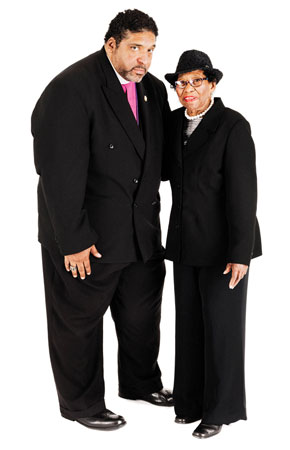
But the state’s assault on voting rights wasn’t just a black problem, said the Reverend William Barber, president of the North Carolina NAACP, after the arguments had concluded and everyone had gathered at Richmond’s Third Street Bethel AME Church, a mile away, for a press conference and a chicken lunch. The mood was light. The three-judge panel had seemed sympathetic to the NAACP’s argument—that HB589 had been passed so fast after Shelby was decided, one judge said, “looks pretty bad to me.” When another judge asked the state’s lawyer if the Legislature had researched voting data by race and the lawyer responded, “Let me ask you a question,” the judge shot back, “You don’t ask me questions.” The crowd was hopeful, in a hard-won way. In the years after HB589 was passed, Barber had been leading a series of demonstrations, a.k.a. “Moral Mondays,” where protesters gathered in front of the Capitol. Now he led everyone in song before slowly escalating into a preacher’s cadence. “I couldn’t help but recognize that here we are in the capital of the old Confederacy, and those who were defending voter suppression were all white men,” he said. The three core plaintiffs, who flanked Barber now, were black women (“the matriarchs,” he called them), including 95-year-old Rosanell Eaton, who’d made almost a dozen visits to three different agencies in a month to get ID that complied with the new law—the process harder and longer than the two-hour mule trip and Constitution preamble recitation she’d endured in the 1940s to become one of the first blacks to register in the South.
Barber encouraged the crowd to look beyond voting rights: Because of the “white Southern strategy to use code words,” he warned, poor whites didn’t know they were getting screwed by conservative policies, too. Politicians used to distract them from economic injustice by stoking anxiety over integration. Then it was panic over welfare. “Just like when you call the president the ‘food stamp president.’…You’re suggesting policies that would have a disparate impact on black, brown, and poor white people, but you say it in a way that poor white people miss it. Nixon used it and won overwhelmingly the South.” These days, distractions include bathrooms. Pitting people against each other, he said, “undermines the ability of blacks and whites to be a fusion coalition, because those who are afraid of the fusion coalition know the power of it.”
Barber had been fostering such coalitions for a decade. In 2006, one year after he became North Carolina’s NAACP president, he pulled together unions, environmental organizations, and civil rights groups to push their issues through the Legislature. Progressives accomplished a lot in a relatively moderate state: death penalty reform. Anti-bullying legislation. A statewide smoking ban in bars and restaurants, in the heart of tobacco country. Then Barack Obama got elected, and what some locals refer to as a “great backlash” ensued. In 2010, the school board in Raleigh began to dismantle a nationally recognized diversity busing program. In 2011, the Republican majority Pope helped put in power did indeed REDMAP the state, redistricting legislative and congressional districts. The following year, Republicans won 9 of 13 congressional seats. As more progressive wins were rolled back—abortion access, unemployment benefits—more organizations, from Planned Parenthood to immigrant groups, joined Barber’s coalition. Liberals around the nation started pouring money into the state. What had been a 10-group coalition became a partnership of 260.
Video: The History of Voting Rights in North Carolina by Project Turnout
Now, both sides of the political spectrum are hell-bent on winning the ground game in North Carolina, a swing state where national issues like transgender rights, voting rights, police violence, and campaign finance are dramatically converging. But what’s happening here is about far more than who will occupy the White House come 2017. North Carolina is a testing ground for whether we are in an era of expanding or contracting rights—and whether, with some of the best organizing in the country, progressives can transform a spike of energy around the bathroom bill into lasting power.
“If you register 30 percent of unregistered blacks in the South, and they hook up with Latinos and progressive whites,” Barber cried, “you really begin to change the South.” He went on, as the amassed reporters of all colors looked increasingly bored, their attention waning for a fight often considered to have ended more than 50 years ago. But the Supreme Court had provided a road map for how to roll back voting rights, Barber warned; North Carolina’s HB589 “was the first and the worst case after Shelby,” but similar bills had been introduced all over the country. “Is America a place of retrogression?”
A week after the NAACP bus ride, I sat in the excessively air-conditioned basement of a Raleigh DoubleTree hotel, where red pillars were bedecked with signs declaring “North Carolina’s Conservative Voice.” Civitas Institute President Francis De Luca promised to keep citizens informed “about what’s really going on in our state,” as he welcomed 85 people to the institute’s monthly lunch, where the results of the Pope-funded think tank’s work are revealed. Civitas commissions studies, like one that touted a lower income tax (the Legislature then lowered the income tax), and conducts polls, on topics like vouchers for private schools (subsequently funded by the Legislature), thereby trying to “equip the legislator, as well as the layman, with the tools necessary to understand public policy in North Carolina.” After I sat down to my plates of chicken, pasta, salad, and cake, North Carolina Republican Party Executive Director Dallas Woodhouse—previously the state director of Koch-funded Americans for Prosperity—approached to shake my hand and join me at my table. No one here asked suspiciously if I was working for the other side; everyone else at the lunch appeared to be white, too—save the waitstaff.
Kristen Jaciw, a regional field finance director for the Republican National Committee, sat between me and Woodhouse. Gov. McCrory’s political director, Ryan Terrill, joined our table, along with another campaign staffer. At the front of the room, De Luca introduced the guest speaker for the day, Joe Stewart of the North Carolina FreeEnterprise Foundation, who said he described his previous job as a lobbyist to his young daughter by telling her he “killed baby seals for a living,” which really cracked the room up.
De Luca took the audience through a slideshow of Civitas’ most recent polling data about various initiatives. A freeze on UNC tuition increases for students who graduate in four years (63 percent support). A $1.6 billion light-rail line connecting Chapel Hill to Durham (54 percent oppose). Who should get to view police body-cam footage (47 percent said everyone, 31 percent said law enforcement should decide). When De Luca read the question of whether people would support Obamacare being extended to illegal immigrants who were working, the room erupted in groans; when he revealed that 40 percent said yes, the groans got louder and more flabbergasted. The woman sitting to my left, a retiree who was the only other non-political-operative at my table, told me she came because she finds the information interesting and shocking every time. “I can’t believe anybody disagrees with me,” she said, laughing exasperatedly. “How can they be so dumb?”
Despite the GOP’s lock on the Statehouse, North Carolina is still more Democratic than Republican, De Luca reminded the crowd. McCrory is up for reelection; his favorability was “underwater” for a bit, but that was “at the height of the HB2 thing.” (Currently he and Democratic challenger Roy Cooper are polling within a point of each other.) Still, De Luca warned, this November was going to be competitive, more competitive than in many states. But voters are disenchanted. Their choices for president are “a grandma that yells at you or a guy with a bad tan,” so “young people won’t come out, like they did for Obama, this time.” Lest the crowd be too encouraged, Stewart warned that “there’s a lot of money coming into the state from outside sources. Batten down the hatches. It’s a tight race comin’ up.”
Meanwhile, in the face of HB2 backlash, a working group started to form to try to reach a bipartisan compromise. One of its leaders was former Democratic Lt. Governor Dennis Wicker. Another was Art Pope. The day before the Civitas luncheon, draft legislation, later attributed to a GOP state legislator, leaked to the public. It would have allowed trans people who couldn’t change their birth certificates (which some states do not allow) to use the bathroom of their choice, provided they had a state-issued “certificate of sex reassignment.” LGBT groups and the American Civil Liberties Union rejected any compromise and stood fast in calling for a complete repeal of HB2. After the legislative session ended with HB2’s most controversial provisions intact, Pope expressed disappointment that some gay rights activists had rejected proposed compromise solutions, including the possibility of certificates.*
In 2015, Civitas published “Mapping the Left,” a searchable database of names and affiliations of liberals that tracked how they organize together. “Since well before the 2010 election, groups on the Left have been relentless in North Carolina,” reads the intro. “[W]e watched them work separately and together during political rallies.”
This is not conspiratorial conservative thinking. Or, it is, but it is also true. “We spent years and years laying the foundation for the progressive groups to work together,” said Ian Palmquist, former executive director of Equality North Carolina, the state’s largest LGBT advocacy group, over iced tea in Raleigh. “Not necessarily in the machinelike way of the Art Pope industrial complex, but at least to all have really strong relationships, and I think that made it possible—when we did find ourselves with this conservative-dominated government—to really come together with a fairly united front.”
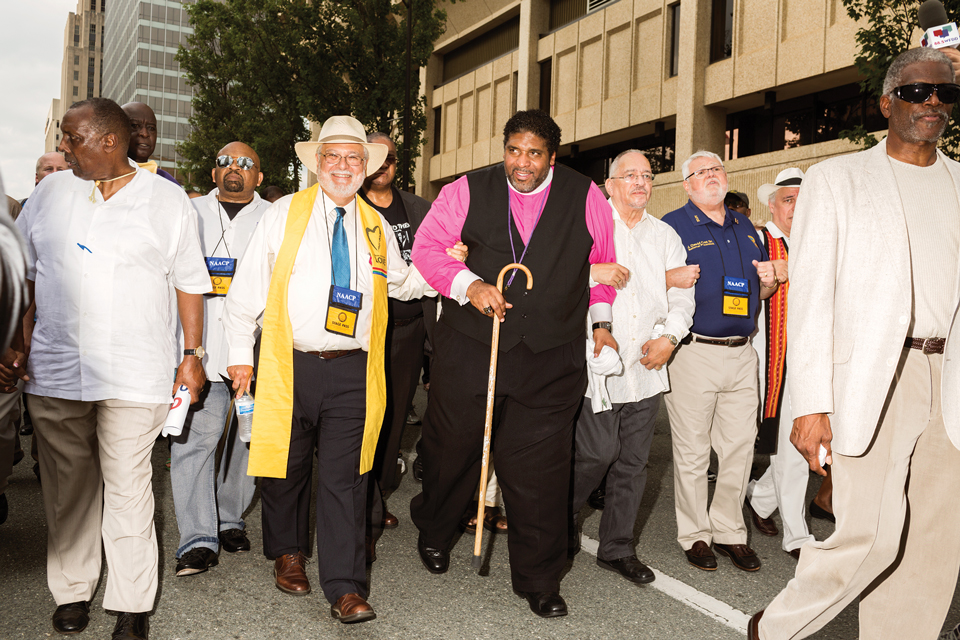
What Palmquist described as long, hard, tense coalition building well positioned the left to respond to the perfect storm that was HB2. The bill was a gift to fundraisers and organizers on both sides, who, after the legalization of gay marriage, needed an issue to rally their bases around. After HB2 passed, there was a Moral Monday focused on workers’ and trans rights, with hundreds turning out and at least 54 arrested in acts of civil disobedience. “These elected officials think we’re dumb,” Abdul Jalil Rasheed Burnette, a Bojangles worker and an organizer with the minimum-wage campaign Fight for $15, told the crowd. “They think we’re gonna fall for their boogeyman attacks on our trans community members. But we aren’t.” The day before the oral arguments in Richmond, Moral Mondays again rallied against HB2 and held a vigil for Orlando victims, 49 mostly Latino queers killed in a mass shooting a week prior. The Reverend Barber stood on a stage with multiple gay leaders, including Nancy Petty, the senior pastor of Raleigh’s Pullen Memorial Baptist Church. It was Petty who, six years ago, began building a relationship with Barber that led to his Disciples of Christ congregation letting her visit as a guest preacher, and, ultimately, an alliance between the NAACP and LGBT groups. Also sharing the stage were a black imam, a female rabbi, and three black Southern ministers, all straight, all of whom talked about the importance of gay rights. “Every living soul, regardless of sexual orientation, has a right to live in this country without fear,” the imam said.
But as much as HB2 billboards the state’s impressive progressive coalition, it may also serve to highlight its cracks: Two days after the Moral Monday vigil for Orlando, another vigil happened in the exact same place, this one organized by TurnOut NC, a coalition headed by the ACLU, Equality NC, and the Human Rights Campaign, the nation’s largest LGBT rights group. “That’s a little bit of a problem that we have in North Carolina with the Moral Monday movement and the LGBT community,” Petty conceded. “This is one of the hard places where we’re still tryin’ to build this kinda movement where everybody’s together and it’s not just about my one thing or your one thing, but as far along as we’ve come in that, we’re still not there yet. Reverend Barber, he wants the LGBTQ people to support his stuff”—as he supports theirs—”and then Equality NC and LGBT Center of Raleigh and TurnOut, they do their thing.” (The second rally, in addition to being separate, made hardly a mention of voting rights or wage suppression.) “We’re still trying to work out how to best collaborate.”
Sitting down in her church’s sanctuary, Bishop Tonyia Rawls, founder of Sacred Souls Community Church, a United Church of Christ offshoot in Charlotte in which all the walls are painted lavender, put it somewhat differently: “You wanna really kinda bitch-slap people sometimes.”
She put her hand to her chest and then to the sky. “Forgive me, Lord,” she said. “Every now and then you just wanna bitch-slap somebody.”
Rawls is 58. She is a lesbian. She is black. In the early 2000s, she started building a coalition between her church, largely LGBT congregants of color, and 30 “conventional” African American churches to address HIV and AIDS in their communities. “Southern organizing is intersectional,” she explained. “We don’t always get the luxury of breaking things out” when working on race, education, incarceration; overlap happens, and relationships are crucial.
So she’s disappointed in what she sees as the failure of Gay Inc.—what she and others call the large, well-funded, mostly white, predominately cisgender (as opposed to transgender), male-led nonprofits like HRC and Equality NC—to build on such inclusion. “On one hand I’m incredibly excited about some of the work” the LGBT community has accomplished, she said. “On the other hand I’m a bit disappointed that I do not feel that the sacrifices are reciprocal.” When LGBT groups condemned the compromise measure that contemplated state certificates of reassignment, their statements calling for a full repeal glossed over the wage suppression measures also in the bill.* Trans people, poor people, people of color, and old people built more of the bridges within the state’s progressive movement, Rawls said—and offered themselves up to get arrested more—than did white male cisgender professionals. “And it’s becoming increasingly difficult to justify.”
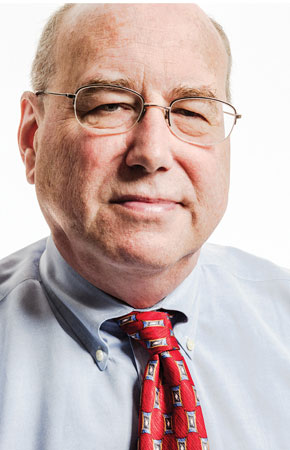
As a gay activist who used to have to convince straight progressives that gay rights were important to the broader movement, Rawls feels shortchanged that voting rights and poverty are not properly included in some gay groups’ agendas: “It shocks me that it feels very familiar because I’m having to again build arguments about why this is also our issue”—gays’ issue—”but I’m having to do it in reverse.”
Palmquist, now senior director of programs at the Equality Federation, a national LGBT advocacy group—and who said, when I told him Rawls wanted to bitch-slap some coalition allies, “That’s totally fair; I’m sure she’s wanted to bitch-slap me at some point”—said it would be naive to assume that all progressive priorities will always align. “One of the big tensions just within the LGBT movement, for example: We’re partnering a lot with the business community because they’re better than government on discrimination.” But those same business folks, he said, “are not necessarily good on minimum wage. They’re not necessarily good on labor, which is not strong in North Carolina. They may not even be good on some environmental stuff that our environmental partners are working on. We have to have those partnerships with business because it’s really effective and it helps us get things done. And we also have to recognize how we balance that with our progressive partnerships.”
That means the queer part of the movement, however, is less reliant on nonbusiness partnerships. When I met Burnette, the Bojangles worker, at his apartment in a subsidized housing complex in Durham, he acknowledged that if the General Assembly repealed just the anti-LGBT parts—trans bathrooms, discrimination statutes—of HB2, many segments of the movement would be disappointed. Still, he believed that “now that Hate Bill 2 exists, we’re pulling together”; the LGBT movement won’t leave the repeal fight until all of it, including the minimum-wage piece, is abolished.
Rawls is not so sure. “They don’t need anybody,” she said of Gay Inc. “If we wanna get nakedly honest. They definitely don’t need immigrants. They definitely don’t need ex-cons. They definitely don’t need trans people”—except, she said, to fundraise off of now that the Supreme Court has approved gay marriage. “It’s real. But nobody likes to say it though.”
When I asked Chris Sgro, executive director of Equality NC and the only openly gay member of the state House of Representatives, why his group hadn’t synced up with the Moral Mondays Orlando rally, he said, “I think with the ongoing energy in response to HB2 and now in the wake of Orlando, people are looking to bring themselves together on a rolling basis, and we’re happy to provide an outlet.”
One activist I interviewed agreed with this. More didn’t. But paramount to success is how the progressive coalition will come together when it’s time to vote—or whether they can vote, and not have their votes gerrymandered away. That’s true everywhere, but especially in North Carolina. Two days after the Civitas luncheon, the 4th Circuit appeals court ruled that Raleigh’s school board and county commissioner election districts were unconstitutional, favoring suburban and rural voters and violating the rule of “one person, one vote.” That same week, the Supreme Court agreed to hear a case about whether the state’s congressional districts are unconstitutional as well, and the NAACP, the League of Women Voters, and others have asked the court to review whether the state’s legislative districts are unconstitutional, too.
“The reality is we’re a pretty evenly split state that’s becoming more progressive all the time,” Palmquist said. But “when does that become enough to overcome the terrifically bad districting? We haven’t consistently put as much money into the electoral piece as the right has. We have to do it. That’s a place where we really need to see progressive groups coming together.”
On the morning of the Fourth of July, Southerners On New Ground (SONG) organizers Serena Sebring and Jade Brooks pulled onto a side street of Southport, a little town on North Carolina’s coast. Floats had been lining up for the state Independence Day parade since 8 a.m. On Rhett Street, past the local theater group practicing nostalgic tunes—”He’s a Rebel,” “Be My Baby”—and near the Walmart float bedecked with signs (“Faith Family Freedom”) and blasting “Thank God I’m a Country Boy,” was the spot reserved for SONG’s silver Ford F-150. The noise from other entrants in the parade, which attracts 50,000 people from all over the state, bounced eerily around the muggy, sleepy quiet. At most of the floats, the wait for the 11 a.m. start felt like boredom. At Float 92, it felt like tension.
A week earlier, in a food co-op in Raleigh, Brooks had said the GOP was trying to have it both ways on states’ rights. “They’re trying to say, ‘We don’t want the federal government to come in and squash any of our states’ rights, but we actually wanna supersede any kind of local organizing and local power.'” SONG is a regional “queer liberation organization” led by people of color, and to them, HB2 is an attack on local democracy: The bill arose in response to an anti-discrimination statute that Charlotte had passed protecting trans people’s right to use the bathroom of their choice. “And that has been super clear from the General Assembly,” she added, “when over and over in our towns, we see hard-won victories squashed at the state level.”
“What unity requires is reaching out to people in our rural communities who have not had access to the political discourse and organizing infrastructure that folks in Charlotte or in Durham or in Raleigh have had,” Sebring said, about the decision to show up here in Southport—outside the progressive bubble of the Triangle, where it seemed like every business had a sign up encouraging people to use whatever bathroom they wanted (though not protesting HB2’s wage caps) and front lawns and windows displayed placards that read “Y’All Means All.” The state’s population is growing fast, and a lot of it is baby boomers retiring from the Northeast and West, bringing their values and their money to Asheville and Wilmington and Chapel Hill. But that, as Rawls pointed out, is not the state.
“We hear about this language of ‘independence,'” Brooks had said. “The Fourth of July is about liberty and independence. At SONG we think of independence more as interdependence; we wanna offer people a new vision of the South. LGBTQ, immigrant communities, black communities, working communities, Muslim communities—we need each other more than ever. We wanted to bring that into a more official space where people don’t always agree with us.”
At Float 92, nine people showed up to march, including a baby. “We definitely thought we were gonna have more people,” Sebring said—at least 30. A white trans guy in a button-down suit vest named T.R. said Cape Fear Equality, the local branch of Equality NC, wouldn’t come. “I’m trying to drag ’em out,” he said. “But they’re really mainstream.” Other than him, the membership of Cape Fear Equality is older whites, mostly cisgender men. SONG was founded by a multiracial group of lesbians.
On the passenger side of SONG’s truck was a Black Lives Matter banner. On the driver’s side, a banner topped with a giant rainbow read, “The People’s Agenda, Pro-Worker Pro-Black Pro-Trans Pro-Queer Pro-Immigrant.” The sign taped to the front of the truck proclaimed, “Crush the Confederacy.”
A few floats away, in a shady cemetery, Sons of Confederate Veterans snapped pictures in full gray uniforms with their own banner: “Proclaim Your Southern Heritage. 1-800-MY-SOUTH.” They were visible as Brooks tried on a massive paper-maché head in the likeness of Gov. McCrory, which she planned to wear, despite a 105-degree heat index.
“I think we’re gonna get applause!” T.R. said. Then he laughed nervously and pointed at himself: “Delusional.”
But.
Then.
That’s exactly what happened.
At first.
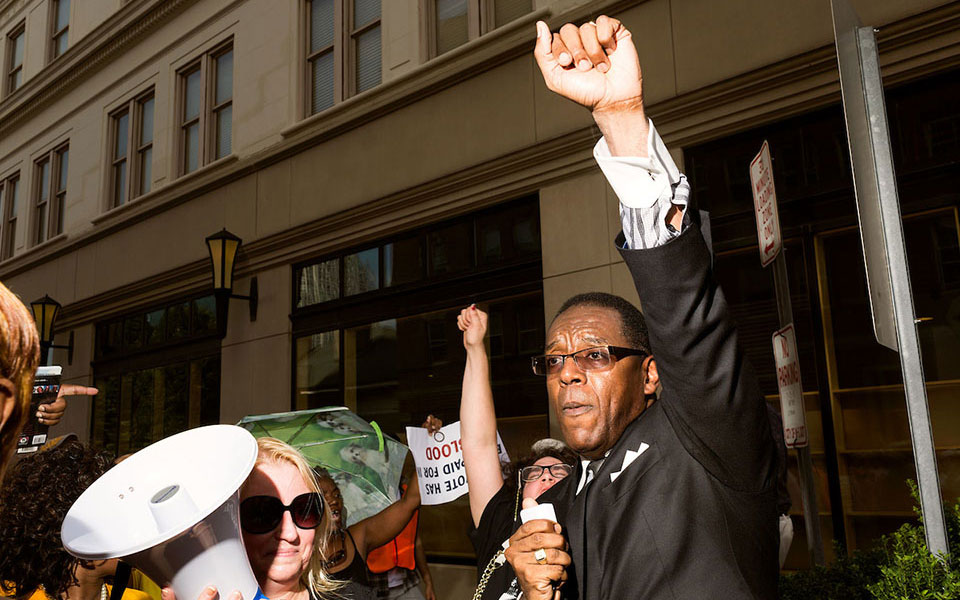
As the parade finally started, Sebring pulled the truck out onto a bigger street. Each person in the back held a sign reading “pro-queer,” “pro-trans,” “pro-black,” “pro-immigrant,” or “pro-worker”; Brooks walked behind in her giant Pat McCrory head. No one talked. The crowds back here, as the floats crawled toward the main parade route, were thinner. But among those standing on the shaded lawns, there was a lot of clapping. There were even bursts, as SONG passed, of loud whoo-ing.
Not everyone was doing it. Not even close. But enough, and they were almost all white and straight-looking—young families, it seemed. In this setting, the SONG truck was something to see. You could hear it in the surprised enthusiasm of the whoos, yelled by people clapping hard or with their arms raised high.
But then, along the main route, things changed.
Brooks was stopped by a parade official and told to take off McCrory’s head. We told you guys, the official was saying, and they had, when SONG had signed up: No statements about HB2, and keep it apolitical. But now on the main drag, with people packed everywhere along the side of the road, Brooks thought it was unlikely anyone would reprimand her publicly—and weren’t those Confederate flags political?—so she put the head back on. Some 80 floats farther up, the governor himself was at the head of the parade, and while he maybe didn’t get as much applause as, say, the Sudan Dunn Clowns dancing to Meghan Trainor, he did get a steady polite stream of it, as had every other float that had come through. As SONG entered the main route, the clapping mostly stopped.
There were still pockets of whoos and applause. But they were fewer and farther between. The truck turned every head that it passed, and those who didn’t clap narrowed their eyes as they read the signs, and looked either confused or angry. “There’s probably gonna be a fight out here,” one white guy on the sidewalk said to his friend. “Those other guys”—the Sons of Confederate Veterans, who were a few floats up on a big red pickup with a Donald Trump sign in the front—”had swords.”
“Terrorists,” someone spat as SONG passed.
“Oh, Lord, that is offensive.”
When one crowd member asked, “What’s that float doing in the parade!” a man assured her, “You didn’t hear anybody clap, though.” One guy, in his late teens or early 20s, started clapping, and his friend shushed him, telling him that he had better think before he cheered.
“Black lives matter,” an older man read off the banner in a low voice, seemingly encountering the phrase for the first time. “To who?”
This lack of support, said Amber Goodwin, a 27-year-old African American woman who whooed the SONG truck as it passed, did not represent the North Carolina she knew. When she was in school, right here in Southport, it was fine to be gay, she told me, and it was fine to be black. “We’re all for it on this corner,” she said, gesturing to her young, multiracial group of friends.
A few yards down from her, an older white man yelled at the float loudly, “Booooo!”
A few yards down from him, another white man did the same.
“We have set an intention to be bold,” Sebring had told me the week before, “because we think our people are worth the risk. And that means going to the Fourth of July parade and bringing our full, beautiful, creative, glittery, and bold and frankly unafraid selves into the spaces.” Though far fewer allies showed up than she’d wanted, she still hoped “to find the folks who are looking for us and to also just stay. We talk about the South as a place where people have to leave because they’re gay, and we’re staying.”
In a few weeks, those same three federal judges at the 4th Circuit Court of Appeals—all appointed by Democrats—would strike down the HB589 voter ID law, saying it purposely targeted African Americans. The prayer from a woman on my NAACP bus—that William Lewis Moore and Medgar Evers may not have died in vain—is answered. Two weeks after that, the same court would rule that 28 of North Carolina’s 170 state legislative districts were unconstitutional “racial gerrymanders.” “Race was the predominant factor motivating the drawing of all challenged districts,” the court found, creating “one of the largest restrictions of the franchise in modern North Carolina history.”
Six days later, the Raleigh News & Observer would report that Dallas Woodhouse, the state Republican Party executive director and my Civitas lunch buddy, sent an email to county election boards urging them to go ahead and close early voting sites on Sundays, since the 4th Circuit decision mandated the number of days that counties must hold early voting, but not on which days, or where—or for how many hours a day. Woodhouse also encouraged election boards to eliminate early voting sites on college campuses.
Back at the parade, near where Amber Goodwin and her pack of diverse friends were watching, there was a couple, white, probably early 40s, who started scowling as SONG’s float passed. I asked them if they didn’t approve, and they shook their heads. The man, large and silent, edged in close to the woman when I asked why. “You shouldn’t have politics in the parade,” she said. And that’s all she’d say, except, “It’s about independence.”
Correction: The original version of this piece mischaracterized a working group Art Pope helped form, and a piece of draft legislation was incorrectly described and mistakenly attributed to that group. We regret the error and apologize to Mr. Pope.
Video reporting by Kelly Duane de la Vega and Jessica Anthony (Project Turnout).
